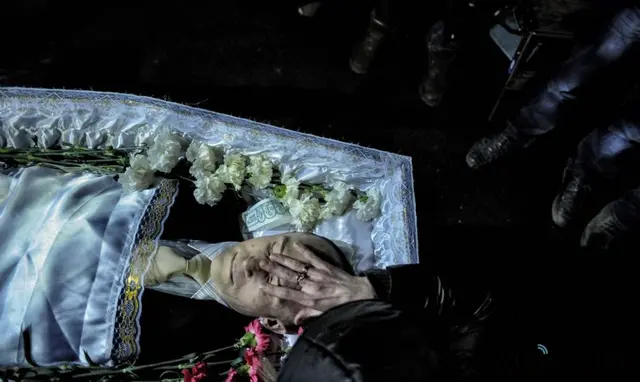Katherine Grainger, the chair of UK Sport and one of Britain’s greatest Olympians, says there is “a very strong argument” that there should be no Russian athletes at next month’s Winter Games in Pyeongchang because of the country’s systematic doping problems.
Speed skater Elise Christie, front, is one of Great Britain’s main medal hopes at the 2018 Winter Olympics in Pyeonchang. Photograph: Chung Sung-Jun//ISU via Getty Images
Grainger, who took charge of the UK funding body for Olympic sports last year after retiring from rowing following the Rio Games, also warned the International Olympic Committee that the public would lose faith in sport if cheats did not face harsh sanctions.
“What doping steals from athletes is irreplaceable,” said Grainger, speaking from experience, having initially lost a 2006 world championship medal to a Russian crew that was subsequently banned. “And when it happens time and time again, on that scale, then you realise that maybe the punishments haven’t been serious enough in the past and things need to change.”
After agreeing that the IOC’s decision to allow some Russians to compete as Olympic Athletes from Russia was “a fudge”, Grainger was asked for her likely reaction if any British competitors lost out to Russians in Pyeongchang. “You can imagine how we will feel,” she replied. “There’s a very, very strong argument that there should be no Russians there – at all.
“Because when the public lose trust in a system, a sport or a country, as they have done with Russia, it reflects badly on all sport.”
Meanwhile, British Olympic chiefs and UK Sport defended the £32m funding of Winter Olympic sports after targeting their best-ever performance in Pyeongchang.
UK Sport has set a medal target of at least five medals – one better than in Sochi in 2014 – and says that, if all goes to plan, 10 medals were possible.
However, questions were raised about the levels of funding for winter sports given that so few people take part in them in Britain. Skeleton, for instance, gets £6.5m over four years but is expected to get only one medal.
UK Sport’s chief executive, Liz Nicholl, defended the funding and said the nation benefited when British athletes made the podium. “We will always focus on the medal moment to make everyone proud and to create a healthy, ambitious and active nation,” she said. “I am really confident there will be smiles on our faces as we watch through the Pyeongchang Olympics and Paralympics. And, relatively, it is a smaller amount of money compared to what we put into the summer sports.”
Bill Sweeney, the chief executive of the British Olympic Association, pointed to the success of cycling to show how public attitudes have changed – and claimed the same thing could happen in winter sports. “If you had said 15 years ago that we would ever be a cycling nation, you would probably have thought no way,” he said. “But there has been a lot of investment and we have seen some amazing success inside and outside the Olympic Games.
“I think that logic applies to the snow sportsIf you look at slopestyle and alpine skiing and snowboarding, I see a lot of kids going to Europe to participate in that. And winning medals makes a difference.”
(GUARDIAN)
 简体中文
简体中文

